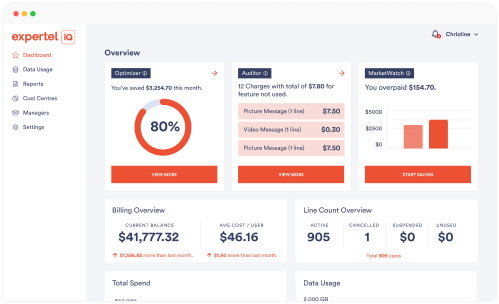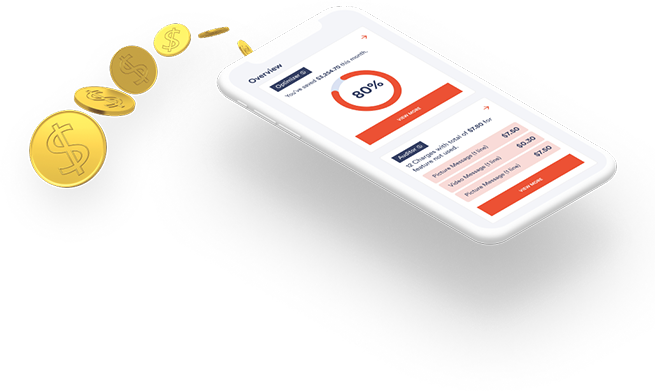The Price Breakdown: Company-Paid vs
Employee Reimbursed Phones
In this Article:
When it comes to finding better wireless expense management options, many companies are willing to go to great lengths to save money. Canada has some of the most expensive phone plans in the world, and we’re content to spend an average of 17% to 40% more than our neighbours south of the border. This has led some companies to maintain insecure and haphazard wireless policies in order to keep their monthly costs down.
Many companies who want to save money have chosen to reimburse their employees for providing their own cell phones, often called the BYOD (bring your own device) approach. While this approach works for some companies, it does have drawbacks, and often involves hidden fees and surprise expenses that can negatively impact your bottom line.
Today, let’s explore the costs associated with employee reimbursed phones vs company paid wireless plans, and see which is the best fit for your business.
Reimbursing Employees for their Phones
Many companies choose to reimburse employees for their phones, thinking that they will save money in the long run since they’re not purchasing the phones themselves.
When instituting this plan, managers and IT leaders must decide whether to offer employees a standard mobile stipend or pay their bill in full every month. In one survey conducted by Oxford Economics, 31% of businesses provided a “full connectivity stipend”, while 58% offered partial reimbursement.
While companies may feel like they’re saving money month-to-month, this approach can be costly if you don’t have an iron-clad policy on what is covered. For example, if an employee travels overseas on company business and is charged roaming fees, who pays that bill? As well, it can get complex when employees break their phone, or are eligible for an upgrade. They may feel like their company should be responsible for those costs.
Company-Paid Phones
Companies that supply their employees with phones can generally expect lower and more consistent monthly bills. Since they purchase both devices and service plans in bulk, they are in a much stronger position when it comes to carrier negotiation.
Plus, they will never be surprised by an unexpected bill or hidden fees due to an employee’s poor planning. Even companies with as few as 10 staff members can expect to save money by purchasing phones and negotiating group plans themselves.
The initial investment may be greater than what you’d pay for a BYOD plan, but it’s worth it in the long run to secure lower, more consistent monthly bills. In terms of both security, productivity, and cost, this is usually the approach our experts recommend.
Are You Paying the Best Price? Let Expertel Find Out.
Want to find out if you’re paying the best price for your wireless expenses? Let the experts at Expertel tell you how your device and plan expenses compare to similarly-sized organizations in your market. We can also let you know where there are potential savings, then step in to negotiate with carriers on your behalf.
Working with us is like having an expert on your team whose sole focus is saving you money on your wireless expenses. Don’t wait until you get hit with an unexpected bill or experience a breach in your device security. Give us a call today to see how we can help.
Reporting
Easy-to-read dashboard, with automatic cost centre allocation and manager reporting.
Unused Line Detection
Easily identify lines that haven’t been used for several months, so you can stop paying for lines you’re not using.
Auditing
Your entire invoice is audited monthly to ensure you’re never charged for services or features you don’t use.
On Click Implementation
Action any of Expertel iQ’s savings recommendations with just one click. You’ll see your savings in a matter of hours.
We find the hidden savings in your wireless bill.
Expertel iQ is your cloud-based savings consultant. We optimize how much you can save per month by adding and removing account features based on what you’re actually using. Never pay for unused lines or redundant features again.







